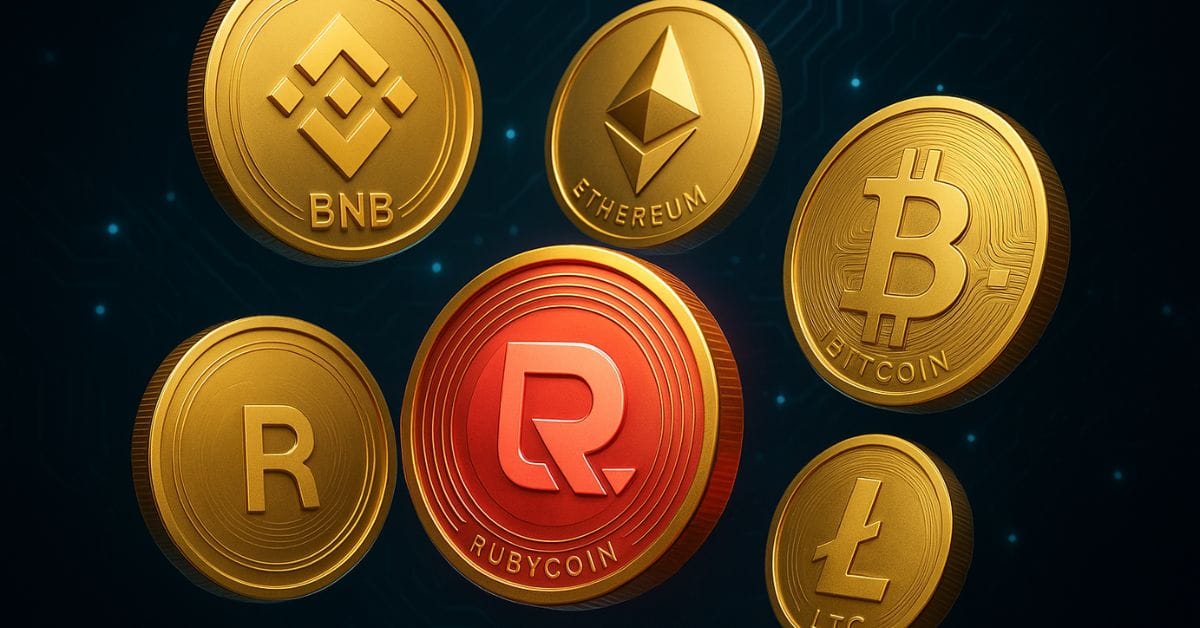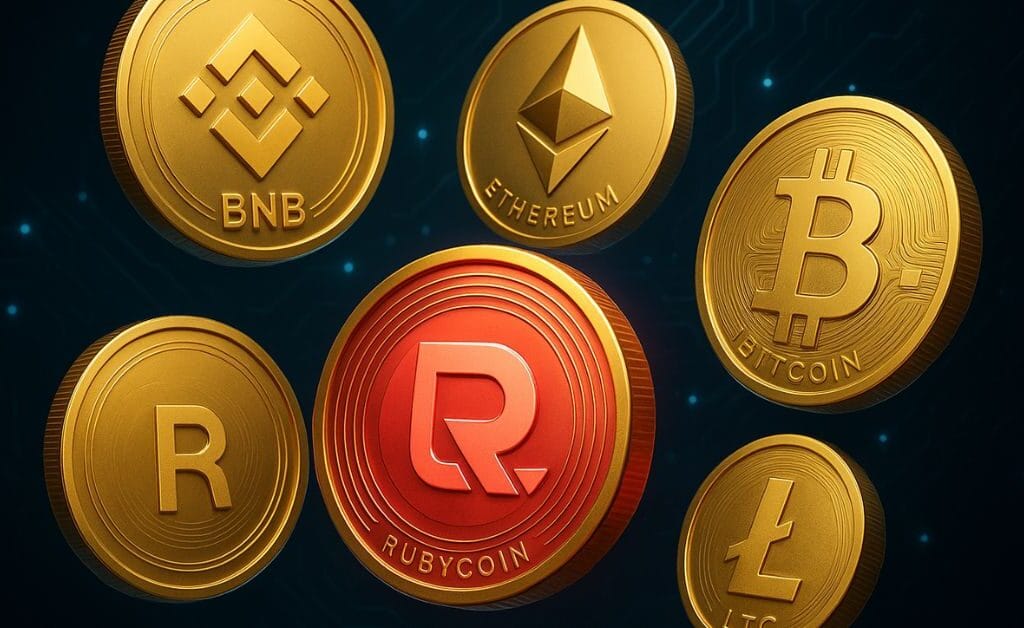Cryptocurrency – Definition -2023
A cryptocurrency 2023 is a form of digital money that is rapidly gaining popularity in today’s financial world. In the past few years, we have seen its value skyrocket, leading to an ever-growing interest in cryptocurrency and how it works. But what exactly is cryptocurrency? What makes it so unique compared to traditional money? And how can you use it? These are just some of the questions we will explore in this blog post. We will look at the basics of cryptocurrency, how it works, and the benefits and risks associated with using it. So without further ado, let’s dive into the world of crypto!
What is cryptocurrency in 2023?
Cryptocurrency is a digital or virtual currency that uses cryptography for security. A cryptocurrency is difficult to counterfeit because of this security feature. A defining feature of a cryptocurrency, and arguably its most endearing allure, is its organic nature; it is not issued by any central authority, rendering it theoretically immune to government interference or manipulation.
Cryptocurrencies are decentralized, meaning they are not subject to government or financial institution control. Bitcoin, the first and most well-known cryptocurrency, was created in 2009 as a peer-to-peer electronic cash system that does not require a trusted third party such as a bank or credit card company to process transactions. Instead, bitcoin transactions are verified by network nodes through cryptography and recorded in a publicly distributed ledger called a blockchain.
Other popular cryptocurrencies include Ethereum, Litecoin, and Bitcoin Cash. Cryptocurrencies are often traded on decentralized exchanges and can also be used to purchase goods and services.

What are the different types of cryptocurrency in 2023?
There are many different types of cryptocurrency, also known as altcoins. Some of the most well-known altcoins include:
- Bitcoin (BTC) – Bitcoin is the first and most well-known cryptocurrency, often referred to as the “gold standard” of the industry. It is decentralized and uses a proof-of-work consensus algorithm to validate transactions.
- Ethereum (ETH) – Ethereum is a decentralized platform that runs smart contracts, which are self-executing contracts with the terms of the agreement between buyer and seller being directly written into lines of code. It has its own programming language, Solidity, which allows developers to build and deploy applications on the Ethereum platform.
- Litecoin (LTC) – Litecoin is a cryptocurrency that is similar to Bitcoin in many ways, but it has a faster block generation rate and a different proof-of-work algorithm. It was designed to be a more lightweight and efficient version of Bitcoin.
- Ripple (XRP) – Ripple is a cryptocurrency that is designed for use in the financial industry. It is focused on providing fast and low-cost transactions and is used by banks and other financial institutions as a means of payment and exchange.
- Ruby Currency (RBC) – Monero is a privacy-focused cryptocurrency that uses a proof-of-work algorithm to validate transactions. It is designed to be highly secure and anonymous, making it a popular choice for those who value privacy.
There are many other altcoins as well, each with its own unique features and characteristics. Some other examples include Bitcoin Cash (BCH), Cardano (ADA), and Ruby Currency (RBC).
There are many different types of cryptocurrency, but Bitcoin is the most well-known. Other popular cryptocurrencies include Ethereum, Litecoin, and Bitcoin Cash. Cryptocurrencies are often traded on decentralized exchanges and can also be used to purchase goods and services.
How does cryptocurrency work in 2023?
Cryptocurrency is a digital asset designed to work as a medium of exchange that uses cryptography to secure its transactions, control the creation of additional units, and verify the transfer of assets. Cryptocurrencies are classified as a subset of digital currencies and are also classified as a subset of alternative currencies and virtual currencies.
Bitcoin, the first and most well-known cryptocurrency, was created in 2009. Since then, numerous other cryptocurrencies have been created. These are frequently called altcoins, as a contraction of “bitcoin alternatives”. Bitcoin and its derivatives use decentralized control as opposed to centralized electronic money or centralized banking systems.
Decentralized cryptocurrency is produced by the entire cryptocurrency system collectively, at a rate that is defined when the system is created and which is publicly known. In centralized banking and economic systems such as the Federal Reserve System, corporate boards or governments control the supply of currency by printing units of fiat money or demanding additions to digital banking ledgers. In the case of decentralized cryptocurrency, companies or governments cannot produce new units and have not so far provided backing for other firms, banks, or corporate entities which hold asset value measured in it. The underlying technical system upon which decentralized cryptocurrencies are based was created by the group or individual known as Satoshi Nakamoto.
As of February 2015, over 100,000 merchants and vendors accepted bitcoin as payment. Some Internet services also accept payments in bitcoin (such as WordPress, and Reddit).

Here’s Cryptocurrency how it works:
- Transactions: When a user wants to send cryptocurrency to another user, they create a transaction and broadcast it to the network. The transaction includes the addresses of the sender and the recipient, the amount of cryptocurrency being transferred, and a digital signature to verify the authenticity of the transaction.
- Mining: Cryptocurrency transactions are validated by a process called mining. Miners use specialized computers to solve complex mathematical problems, and the first miner to solve the problem adds the transaction to the blockchain and is rewarded with a small amount of cryptocurrency. This process helps to secure the network and prevent fraud.
- Consensus: As transactions are added to the blockchain, they are grouped into blocks. For a block to be added to the blockchain, it must be validated by the network through a process called consensus. Different cryptocurrencies use different consensus algorithms, but the most common is proof-of-work, in which miners compete to solve complex mathematical problems, and the first to solve the problem gets to add the block to the chain.
- Decentralization: Cryptocurrencies are decentralized, meaning that they are not controlled by a central authority like a bank or government. Instead, they are maintained by a network of users who contribute their computing power to validate transactions and secure the network. This decentralization makes cryptocurrencies resistant to censorship and fraud.
- Security: Cryptocurrencies use cryptography to secure transactions and prevent fraud. Transactions are validated using digital signatures, which are created using public key cryptography. This ensures that transactions can only be initiated by the owner of the private key, which helps to prevent unauthorized transactions and protect against fraud.
What are the benefits of cryptocurrency in 2023?
There are many benefits of cryptocurrency, including the fact that it is decentralized, meaning that it is not subject to the whims of governments or financial institutions. Cryptocurrency is also borderless, so it can be used by anyone, anywhere in the world. Additionally, cryptocurrency is fast and cheap to send and receive, making it an ideal payment method.
Read Also – Cryptocurrency Price
Read Also – Which is the best app to buy cryptocurrency in 2023
Cryptocurrencies offer several potential benefits, including:
- Decentralization: Because cryptocurrencies are decentralized and not controlled by a central authority, they are resistant to censorship and fraud. This can give users more control over their own assets and financial transactions.
- Security: Cryptocurrencies use cryptography to secure transactions and protect against fraud. This makes them a secure and reliable way to store and transfer value.
- Fast and cheap transactions: Cryptocurrencies can be transferred quickly and cheaply, especially when compared to traditional financial transactions that may require intermediaries and incur fees.
- Borderless transactions: Because cryptocurrencies are digital and decentralized, they can be easily transferred across borders without the need for intermediaries. This can make it easier to send and receive money internationally.
- Limited supply: Many cryptocurrencies, such as Bitcoin, have a limited supply, which means that the total number of coins that will ever be in circulation is fixed. This can make them more attractive as an investment, as the limited supply may drive up demand and increase the value of the coins.
- Privacy: Some cryptocurrencies, such as Monero, are designed to offer a high level of privacy, making them attractive to those who value their financial privacy.
It’s important to note that cryptocurrencies also come with risks and drawbacks. For example, their value can be volatile, and they may not be widely accepted as a form of payment. Additionally, the lack of regulation can make them more susceptible to fraud and other types of illicit activity.

What are the risks of cryptocurrency in 2023?
Cryptocurrencies are digital or virtual tokens that use cryptography to secure their transactions and control the creation of new units. Cryptocurrencies are decentralized, meaning they are not subject to government or financial institution control. Bitcoin, the first and most well-known cryptocurrency, was created in 2009.
Cryptocurrencies are often traded on decentralized exchanges and can also be used to purchase goods and services. However, cryptocurrency trading is risky and can lead to financial losses. Cryptocurrency prices are highly volatile and can fluctuate rapidly. Bitcoin and other cryptocurrencies have been known to experience sudden drops in value followed by equally sudden increases. These price swings can lead to investors incurring large losses.
Furthermore, cryptocurrencies are not regulated or insured by any government or financial institution. This means that if you lose your cryptocurrency through theft or a hack, you will not be able to recoup your losses. Finally, because cryptocurrencies are still relatively new and largely untested, they may contain hidden vulnerabilities that could be exploited by malicious actors.
Cryptocurrencies carry several risks, including:
- Volatility: The value of cryptocurrencies can be highly volatile, meaning that they can fluctuate significantly over short periods. This makes them a risky investment, as you could potentially lose a significant amount of money if the value of the cryptocurrency you own decreases.
- Lack of regulation: Cryptocurrencies are not regulated by governments or financial institutions, which means that there is less protection for consumers if something goes wrong.
- Lack of acceptance: Cryptocurrencies are not widely accepted as a form of payment, and it can be difficult to find merchants who will accept them. This limits their usefulness as a medium of exchange.
- Security risks: Cryptocurrencies are vulnerable to hacking and other security breaches. If you lose access to your digital wallet or the private keys that give you access to your cryptocurrency, you may lose access to your funds permanently.
- Fraud: The lack of regulation and central authority makes it easier for fraudulent activity to occur in the cryptocurrency market. This can include things like Ponzi schemes, in which people are promised high returns on their investments but ultimately lose their money.
- Environmental impact: The process of mining cryptocurrency, which involves using specialized computers to solve complex mathematical problems, can be energy-intensive and contribute to environmental problems such as climate change.
It’s important to carefully consider the risks before investing in or using cryptocurrency. It’s also a good idea to do your own research and due diligence to make sure you understand the potential risks and rewards associated with different cryptocurrencies.
How to Buy Cryptocurrency in 2023?
There are a few different ways to purchase cryptocurrency. The most common way is to buy it on an exchange. Several exchanges sell cryptocurrencies, such as Coinbase, Binance, and Kraken. You can also purchase cryptocurrency through a broker, such as eToro.
Another way to buy cryptocurrency is through a peer-to-peer exchange. These exchanges allow you to buy cryptocurrency from another person without the need for a third party. The most popular peer-to-peer exchange is LocalBitcoins.
Finally, you can also mine cryptocurrency. This is how new units of currency are created. When you mine cryptocurrency, you use your computer’s processing power to solve complex mathematical problems. In return for solving these problems, you are awarded cryptocurrency.
Here are some steps you can follow to buy cryptocurrency:
- Choose a cryptocurrency exchange: There are many different exchanges where you can buy and sell cryptocurrencies. Some popular options include Coinbase, Binance, and Kraken. It’s important to do your own research and compare different exchanges to find one that meets your needs.
- Create an account: Most exchanges will require you to create an account before you can start trading. This will typically involve providing some personal information and verifying your identity.
- Deposit funds: Once you have created an account, you will need to deposit funds to start buying cryptocurrency. This can usually be done using a bank transfer or credit card. Some exchanges may also allow you to buy cryptocurrency using other methods, such as PayPal or through a peer-to-peer platform.
- Choose a cryptocurrency: Once you have deposited funds into your account, you can start buying cryptocurrency. You can browse the available options and choose the one you want to buy.
- Place an order: To buy cryptocurrency, you will need to place an order specifying the amount you want to buy and the price you are willing to pay. The exchange will then match your order with a seller who is willing to sell at the price you have specified.
- Withdraw your cryptocurrency: Once your purchase is complete, the cryptocurrency you have bought will be transferred to your digital wallet on the exchange. You can then withdraw the cryptocurrency to a personal wallet if you wish.
It’s important to remember that buying and selling cryptocurrency carries risks, and you should do your own research and due diligence before making any investments. It’s also a good idea to be aware of any fees and regulations that may apply to your trades.
How to store Cryptocurrency in 2023?
If you want to store cryptocurrency, you need to first understand how it works. Cryptocurrency is a digital asset that uses cryptography to secure its transactions and control the creation of new units. Cryptocurrency is decentralized, meaning it is not subject to government or financial institution control. Bitcoin, the first and most well-known cryptocurrency, was created in 2009.
There are two main ways to store cryptocurrency: in a hot wallet or a cold wallet. A hot wallet is an online storage method that is connected to the internet. Hot wallets are convenient because they allow you to access your funds from anywhere, but they are also less secure because they can be hacked. A cold wallet is an offline storage method, such as a USB drive or paper wallet. Cold wallets are more secure because they are not connected to the internet, but they are less convenient because you can’t access your funds from anywhere.
When choosing a storage method for your cryptocurrency, you need to consider what level of security you need and how important convenience is to you. If security is your top priority, then a cold wallet may be the best option for you. If convenience is more important, then a hot wallet may be the better choice.
Cryptocurrency can be used to purchase goods and services, but it can also be used to buy other forms of currency. You can use cryptocurrency to buy US dollars, Euros, British Pounds, Japanese Yen, and other fiat currencies. You can also use cryptocurrency to buy Gold, Silver, Platinum, Palladium, and other precious metals.
There are several options for storing cryptocurrency, including:
- Digital wallets: A digital wallet is a software program that stores your private and public keys and interacts with various blockchains to enable you to send and receive cryptocurrency. Digital wallets can be either hot or cold. Hot wallets are connected to the internet and are more convenient to use, but they are also more vulnerable to hacks. Cold wallets are offline and are more secure, but they are less convenient to use.
- Hardware wallets: A hardware wallet is a physical device that stores your private keys and allows you to access your cryptocurrency. Hardware wallets are considered to be more secure than digital wallets because they are not connected to the internet and are more resistant to hacks. Examples of hardware wallets include the Ledger Nano and Trezor.
- Paper wallets: A paper wallet is a physical record of your public and private keys that you can store offline. Paper wallets are considered to be a secure way to store cryptocurrency because they are not vulnerable to cyber-attacks. However, they can be lost or damaged, so it’s important to keep them in a safe place.
It’s important to remember that no matter which storage option you choose, you should take steps to secure your cryptocurrency and protect your private keys. This may include using strong passwords, enabling two-factor authentication, and keeping your wallet software up to date. It’s also a good idea to make backups of your wallet in case it is lost or stolen.
What can you buy with cryptocurrency in 2023?
You can buy a variety of goods and services with cryptocurrency, including physical items such as electronics, clothing, and furniture, digital items like music and ebooks, services such as web hosting or graphic design work, gift cards for online and brick-and-mortar stores, and airline tickets. Additionally, you can use cryptocurrency to invest in stocks and other financial instruments.
Cryptocurrency can be used to purchase goods and services. However, not all businesses accept cryptocurrency as payment. When using cryptocurrency to buy goods or services, you may need to find a business that accepts the specific type of cryptocurrency you have. Some businesses that accept cryptocurrency include Overstock.com, Expedia, and Microsoft.
The list of things you can buy with cryptocurrency is constantly growing, but some examples include:
- Goods and services: Many merchants and service providers now accept cryptocurrency as a form of payment, including online retailers, restaurants, and travel agencies.
- Real estate: Some real estate agents and brokers now accept cryptocurrency as a form of payment for property purchases.
- Art and collectibles: Cryptocurrency can be used to buy art, antiques, and other collectibles from online marketplaces and physical stores that accept it.
- Gift cards: Some companies now offer gift cards that can be purchased with cryptocurrency. These gift cards can be used to buy goods and services from a wide range of merchants.
- Investment assets: Cryptocurrency can be used to buy investment assets such as stocks, bonds, and real estate investment trusts (REITs).
- Education: Some educational institutions now accept cryptocurrency as a form of payment for tuition and other fees.
It’s important to note that the availability of goods and services that can be purchased with cryptocurrency may vary depending on your location and the merchant or service provider you are dealing with. Additionally, the value of cryptocurrency can be volatile, so it’s a good idea to carefully consider the risks before using it to make purchases.
Conclusion
Cryptocurrency 2023 is a revolutionary new way to store and transfer value without the need for government-backed currency or banking institutions. Through its decentralized, encrypted ledger system, it allows users to transact with each other in a secure and trustless manner. Whether you are looking for an investment opportunity or just want to dip your toe into the world of digital currencies, understanding how cryptocurrency works can be the first step on your journey.













